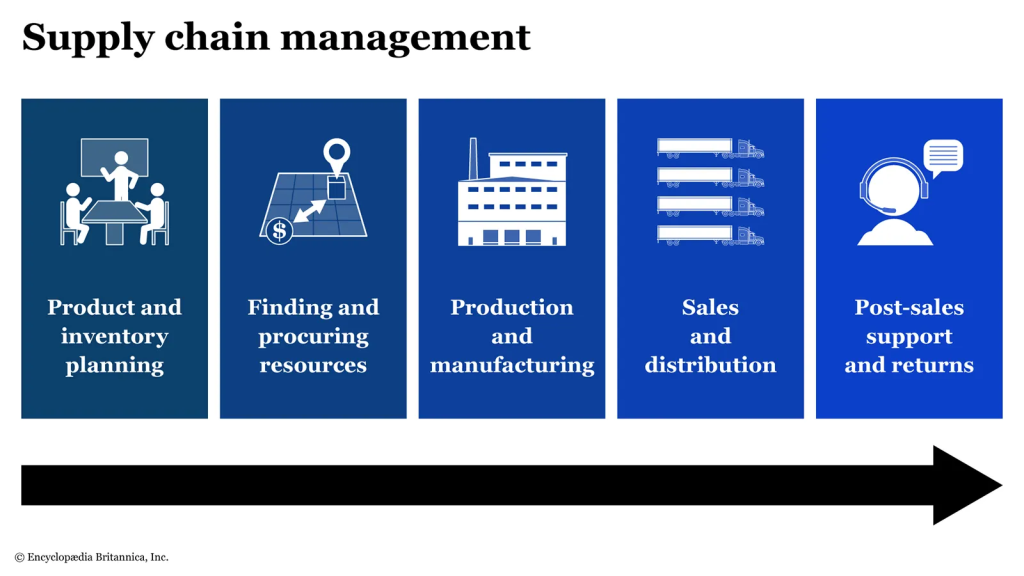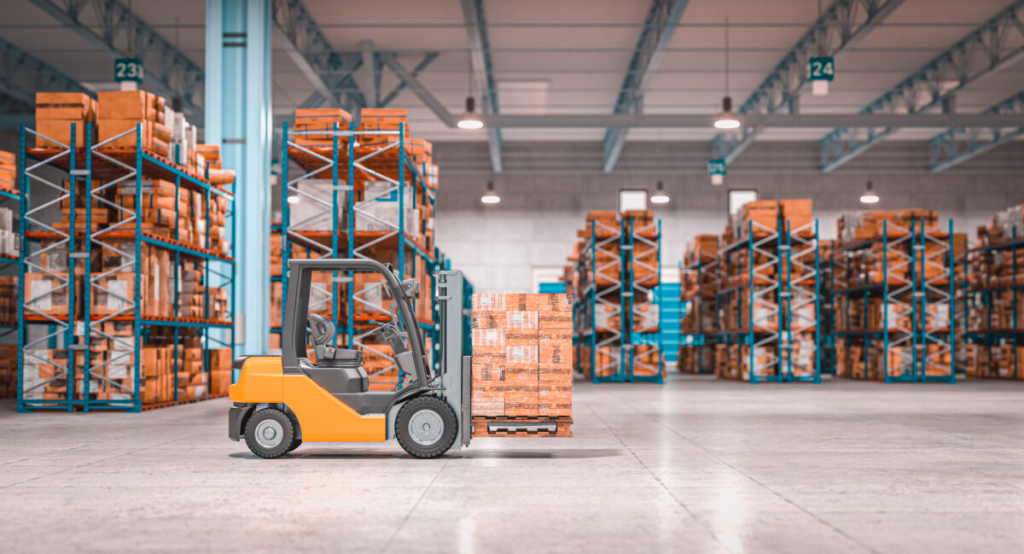Wie KI und maschinelles Lernen die Logistik verändern
Die Logistik Die Industrie erlebt derzeit eine technologische Revolution, wobei künstliche KI und maschinelles Lernen (ML) bei der Umgestaltung von Lieferketten auf der ganzen Welt eine Vorreiterrolle spielen. Diese bahnbrechenden Technologien optimieren die Abläufe, steigern die Effizienz und verbessern das Kundenerlebnis, während sie gleichzeitig zu Kostensenkungen und Nachhaltigkeitsbestrebungen beitragen. In diesem Artikel werden wir untersuchen, wie KI und ML Revolutionierung der Logistik und was die Zukunft für diese Technologien im Bereich der Lieferkette bereithält.
1. KI und maschinelles Lernen in der Logistik-Landschaft
KI bezieht sich auf die Fähigkeit von Maschinen, Aufgaben auszuführen, die normalerweise menschliche Intelligenz erfordern, wie Entscheidungsfindung, Problemlösung und Datenanalyse. Beim maschinellen Lernen, einem Teilbereich der KI, werden Systeme darauf trainiert, Muster in Daten zu erkennen und auf der Grundlage dieser Informationen Vorhersagen oder Entscheidungen zu treffen. Gemeinsam leiten KI und ML eine neue Ära in der Logistik ein, indem sie eine intelligentere, datengesteuerte Entscheidungsfindung, Automatisierung und Vorhersagefähigkeiten ermöglichen, die zuvor unvorstellbar waren.
Diese Technologien werden in jeden Aspekt der Logistikbranche integriert, vom Lagerbetrieb über die Routenoptimierung und den Kundenservice bis hin zum Lieferkettenmanagement. Durch die Verarbeitung großer Datenmengen und die Automatisierung sich wiederholender Aufgaben steigern KI und ML die Produktivität, senken die Betriebskosten und sorgen für mehr Transparenz in den Lieferketten.
2. Optimierung des Lieferkettenbetriebs mit KI-gestützter Vorhersage

Eine der wichtigsten Möglichkeiten, wie KI und ML die Logistik revolutionieren, ist die fortschrittliche prädiktive Analytik. KI-Algorithmen können historische Daten, aktuelle Trends und Echtzeitinformationen analysieren, um die Nachfrage genauer zu prognostizieren und Unternehmen dabei zu helfen, Überbestände oder Fehlbestände zu vermeiden. Durch die Vorhersage der Produktnachfrage ermöglicht KI Logistikunternehmen, intelligentere Entscheidungen zur Bestandsverwaltung zu treffen, die Kosten zu senken und rechtzeitige Lieferungen zu gewährleisten.
Das maschinelle Lernen spielt auch eine wichtige Rolle bei der Verbesserung des Lagerbetriebs, indem es dabei hilft, vorherzusagen, wann bestimmte Produkte wahrscheinlich gefragt sein werden. Diese Vorhersagefähigkeit ermöglicht es Unternehmen, die Lagerfläche zu optimieren, die Bestände zu verwalten und die Vorlaufzeiten zu verkürzen, was letztlich die Effizienz ihrer Lieferketten verbessert.
3. Verbesserte Routenoptimierung und Flottenmanagement
Die Routenoptimierung ist ein entscheidender Bereich, in dem KI und ML einen erheblichen Einfluss haben. Herkömmliche Logistiksysteme stützen sich oft auf statische Karten, aber KI-gesteuerte Systeme analysieren Echtzeitdaten aus Verkehrsmustern, Wetterbedingungen und Straßensperrungen, um die effizientesten Routen für Lieferfahrzeuge vorzuschlagen. Dies trägt nicht nur zur Senkung des Kraftstoffverbrauchs bei, sondern minimiert auch Verspätungen und ermöglicht schnellere Lieferungen.
Im Flottenmanagement werden KI und ML zur Überwachung der Fahrzeugleistung und zur Vorhersage des Wartungsbedarfs eingesetzt. Durch die Analyse von Flottendaten kann KI empfehlen, wann ein Fahrzeug gewartet werden sollte, wodurch das Risiko von Ausfällen verringert und die Lebensdauer der Flotte verlängert wird. Darüber hinaus kann KI Fahrzeugrouten verfolgen und so sicherstellen, dass die Fahrzeuge immer auf dem optimalen Weg sind und ineffiziente Abläufe vermieden werden.
4. Automatisierung von Lagern mit Robotik und KI
Lagerhaus Die Automatisierung ist ein weiterer wichtiger Bereich, in dem KI und ML die Innovation vorantreiben. KI-gesteuerte Roboter und autonome Fahrzeuge werden zunehmend für den Warentransport in Lagern eingesetzt, wodurch menschliche Arbeitskraft eingespart und die betriebliche Effizienz verbessert wird. Diese Roboter können Aufgaben wie Sortieren, Kommissionieren und Verpacken mit bemerkenswerter Geschwindigkeit und Genauigkeit durchführen und arbeiten oft rund um die Uhr ohne Pausen.
KI-Systeme sind auch in der Lage, aus den von diesen Robotern generierten Daten zu lernen und ihre Arbeitsweise im Laufe der Zeit zu verfeinern. Dies führt zu einer intelligenteren Entscheidungsfindung in der Lagerverwaltung, einschließlich der optimalen Anordnung der Waren, um die Auslagerungszeiten zu minimieren und die Lagereffizienz zu verbessern. Die Kombination aus Robotik und KI sorgt für eine schnellere Verarbeitung der Waren und beschleunigt letztlich die gesamte Lieferkette.

5. Verbesserung der Kundenerfahrung mit KI und ML
Die Kundenzufriedenheit ist das Herzstück der modernen Logistik, und KI und ML spielen eine entscheidende Rolle bei der Verbesserung dieser Erfahrung. KI-gestützte Chatbots und virtuelle Assistenten unterstützen Kunden in Echtzeit, beantworten Fragen, lösen Probleme und bieten Informationen zur Sendungsverfolgung. Dank dieses Automatisierungsgrads können Unternehmen einen 24/7-Support anbieten, die Kundenbindung verbessern und die Wartezeiten für Anfragen verkürzen.
Außerdem ermöglichen KI und ML genauere Vorhersagen der Lieferzeiten. Durch die Berücksichtigung von Variablen wie Verkehr, Wetter und Leistung des Spediteurs können Unternehmen ihren Kunden präzise Zustellzeitfenster nennen und so die Transparenz und das Vertrauen erhöhen. Personalisierte Zustelloptionen, die von KI unterstützt werden, ermöglichen es den Kunden, die günstigste Zeit und den günstigsten Ort für den Empfang ihrer Pakete zu wählen, was die Zufriedenheit weiter erhöht.
6. Mehr Nachhaltigkeit in der Logistik
Nachhaltigkeit ist ein wachsendes Anliegen in der Logistikbranche, und KI und ML helfen Unternehmen, ihre Umweltauswirkungen zu verringern. Durch die Optimierung von Lieferrouten und die Verringerung des Kraftstoffverbrauchs trägt KI zu geringeren Emissionen bei und hilft Unternehmen, ihre Nachhaltigkeitsziele zu erreichen. Maschinelles Lernen kann auch zur Bewertung und Verbesserung der Energieeffizienz in Lagern eingesetzt werden, um sicherzustellen, dass der Betrieb so umweltfreundlich wie möglich ist.
Auch bei der Förderung nachhaltiger Verpackungslösungen spielt die KI eine wichtige Rolle. Durch die Analyse von Produktdaten können KI-Systeme die effizientesten Verpackungsdesigns empfehlen, die den Abfall minimieren und die Transportkosten senken. Diese KI-gesteuerten Innovationen sind von entscheidender Bedeutung für Unternehmen, die Nachhaltigkeitsstandards erfüllen und gleichzeitig die betriebliche Effizienz aufrechterhalten wollen.
7. Die Zukunft der Logistik: Was kommt auf uns zu

Mit der weiteren Entwicklung von KI und ML wird die Logistikbranche noch größere Fortschritte erleben. Autonome Fahrzeuge, Drohnen und fortschrittliche Robotik werden die Art und Weise, wie Waren transportiert und ausgeliefert werden, neu definieren. KI wird eine noch präzisere Bedarfsprognose ermöglichen, Bestandsverwaltungund dynamisches Routing, wodurch die Lieferketten weiter optimiert und die Kosten gesenkt werden.
In den kommenden Jahren werden KI und ML auch eine entscheidende Rolle bei der Schaffung widerstandsfähigerer Lieferketten spielen. Durch die Analyse großer Datenmengen in Echtzeit können diese Technologien potenzielle Störungen erkennen und proaktive Maßnahmen zur Risikominderung vorschlagen. Dadurch werden die Lieferketten anpassungsfähiger an Nachfrageänderungen, Unterbrechungen durch Naturkatastrophen oder geopolitische Ereignisse.
Schlussfolgerung
KI und maschinelles Lernen prägen nicht nur die Zukunft der Logistik, sie verändern sie bereits. Von prädiktiven Analysen und Routenoptimierung bis hin zur Lagerautomatisierung und Verbesserung des Kundenerlebnisses - diese Technologien machen Lieferketten schneller, intelligenter und nachhaltiger. Mit dem weiteren Voranschreiten von KI und ML wird die Logistikbranche noch mehr innovative Lösungen erleben, die die Effizienz steigern, die Kosten senken und das Kundenerlebnis verbessern. Die Zukunft der Logistik ist digital, und KI und maschinelles Lernen sind die treibenden Kräfte hinter diesem spannenden Wandel.
Einblicke in die Industrie
Nachrichten über den Posteingang
Nulla turp dis cursus. Integer liberos euismod pretium faucibua








